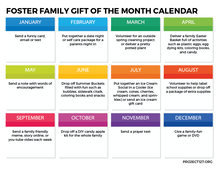|
A well-known phrase from Christianity is “It is more blessed to give than to receive.” This truth permeates the hearts and minds of most believers and has even seeped into secular culture. We see it quoted in Acts 20.35 as Paul is encouraging the Ephesians to support one another. It may seem a bit counterintuitive, but when God moves in our heart to give to and serve others, we experience divine joy. This is because through our selflessness we become more conformed to the image of Christ, who gave himself for us. Further, the more we serve, the more we grow in our love for service. We cultivate ways to reflect His goodness and glory to those around us.
God calls us to be a helper because he is a helper. This is reflected throughout Scripture. In Matt. 5.16, for example, Jesus says, “In the same way, let your light shine before others, that they may see your good deeds and glorify your Father in heaven.” Helping others is not just a good thing to do: it is a holy thing to do. Exhibiting the love of Christ to others amid a self-serving culture sets us apart as believers. Serving foster families gives an opportunity to experience this blessing. What a wonderful way to grow in holiness! Do you have a plan to show Christ's love to your foster family this month? Here are some ideas: Take a meal – Food is always a good idea. You could even take it a step further and organize a meal calendar that provides your family a meal per week. If you live far away from your family, send a door dash or Uber eats gift voucher. Create a new placement basket – Has your family received a new placement lately? Create a basket of supplies they may need. Once you know the child’s age you can pick up some clothing, pajamas, personal hygiene items, toys, snacks, or school supplies. Ask the family if there is a specific need. Be sure to give this basket as a gift to the foster parents, so they can decide what and when these things are given to the child.
0 Comments
Happy New Year! Now, as you look forward into 2022, is a wonderful time to consider how you will support the foster and adoptive families in your life. Could you try one new thing this year to reach out and love the family you support? You could:
Support Team members have new opportunities to provide support to foster families by becoming Alternative Care Providers. Alternative Care Providers, also called Natural Support Providers, can provide up to 72 consecutive hours of care, with a maximum of 7 days care each month. What could this mean to a family? Easier access to respite care for the child with people they know and trust!
Aah! April! It teases us with sunshine and drenches us in precipitation (at least in a good year). We love the hope that rain and snow bring: the green, the new growth, the flowing rivers and filled-up reservoirs, all waiting for us on the other side of the puddles and drifts. Sometimes it’s hard to embrace hope in the middle of a storm.
At times, that's what being a foster or adoptive family is like. There's so much hope for growth and restoration. Simultaneously there’s trauma behaviors, uncertainty, and feelings of isolation. During a season of grief and loss, a Project 1.27 kinship parent recently shared that she didn’t need encouragement, she just needed to know people were sitting with her. This is where YOU come in as “her” support team. You don’t need all the answers, sometimes the family you're supporting just wants someone to pull up a chair and sit. It’s time for March Madness! This past year has felt like madness to many of us. In recent months, most foster families have experienced unprecedented challenges related to systems, resources, and trauma. They need support team players like YOU now more than ever! There are many players on your foster family’s team, and their social worker/case manager is an MVP (Most Valuable Player) we want to recognize in March!
March is Social Worker Appreciation Month and a great time to get involved to support and encourage the social workers in your community! Social workers are the “point guards” found in child welfare, non-profits, schools, hospitals, and businesses. Here are some fun & COVID-19 conscious ideas to show appreciation for the social workers working hard to care for the vulnerable in your community:
February is a great time to show love to the foster or adoptive family you support. God showed his love by sending his one and only Son into the world so that we might live through him (1 John 4:9). As our Father showed His great love in action, through Jesus, we too can say, “ I love you" through our actions! Try some of these fun and meaningful ways to say, “I love you!” For Parents
For a Child
It makes such a difference for foster and adoptive families to know they have a caring support team around them! Anytime is the perfect time to say "I love you" by doing something thoughtful to show your support!  January is a great time to make a resolution that will provide ongoing support, encouragement and care to the foster or adoptive family you serve. Resolve to pray for your family daily, check in with them regularly and offer a unique & COVID friendly gift of support every month of the coming year! Use our list or create one that fits the unique needs of the family you support!  2020 has been a challenging year for everyone, and many challenges remain ahead. For foster families and children, managing day to day life in combination with navigating the complexities of a child welfare case under the umbrella of a pandemic leaves them weary, stretched thin, and exhausted. There is always value in reaching out and asking for help, however, sometimes families may not be aware of the help they need or take time to ask. As we approach the holiday season in a hard year, perhaps one of the most meaningful ways you can honor the generosity and care that often characterizes Christmas is to proactively see and meet the needs of your foster or adoptive family. See a need for caregiver self-care? Self care requires a lot of creativity right now, as many typical outlets are not available. Do you have an hour or two you could set aside every month to be a resource to the family for whatever they need? For example, you could offer two hours of childcare on the first Sunday of every month while the foster parents take time to fill their cup with a favorite self-care activity. See a need for resources? Before running your errands, ask your foster family what you can pick up for them. Organize a small grocery delivery with pantry staples and favorite snacks. Offer to pick up any prescriptions the child may have, or order a delivery of diapers and wipes. The possibilities for tangible ways to take one thing off a family’s plate are endless! See a need for connection? With so many families struggling to keep their heads above water while managing a myriad of daily tasks and responsibilities, isolation is occuring. Does your family need a lifeline of connection thrown their way? Host a Christmas Light Scavenger Hunt around the neighborhood with hot chocolate in hand, exchange Christmas cards with meaningful and encouraging notes attached, or send a quick text to tell the family you prayed over them.reminds the family that they are not alone.
See an opportunity to offer your talents? Do you have a keen eye for photography? Take some updated family portraits. Do you have a background in teaching? Tutor a child or help them with virtual school. Are you crafty? Put together activity kits to help keep the kids occupied. Think about the things you love and are good at, and offer those to the foster family. See an opportunity to offer your time? Families have more time together than ever, and while that is a gift, the absence of childcare and normal social support leaves caregivers wearing too many hats. Perhaps you could keep the child busy by offering to play a virtual game together, tuning in to one of the many webcam experiences offered by zoos, museums, performing arts, or taking the child out for a walk around the park. This will give parents a few moments to regroup and organize the household. See an opportunity to celebrate? Christmas is still the perfect time to spread joy and cheer. Grabbing a coffee? Send your foster family a text asking for their coffee order. Host a multi-family door-decorating competition and decorate each other’s front doors. Share pictures of each other’s Christmas trees and favorite ornaments. Organize a Christmas book swap and exchange your favorite holiday classics. Surprise decorate a family’s front lawn. Go out of your way to show kindness and thoughtful gestures; they mean more now than ever!  What a year this has been! The holidays will be here before we know it. While we hope all families experience a time of celebration and joy, even during this difficult season, the holidays can be a difficult time for foster and adoptive children. The holidays tend to bring up many triggers, questions and tough emotions for children to navigate. Below are some ideas for supporting children during this time.
September is a month to recognize all kinship providers who stepped into an important gap to care for children experiencing abuse and neglect. In circumstances where a child is not able to safely remain with their parent, kinship providers are the first choice for placement to minimize the trauma of removal. Kinship care is defined as a relative or non-relative adult with an existing bond to the child, who agrees to provide care to the child during a dependency and neglect case. This allows children to preserve family and community connections, making kinship providers an invaluable resource. While kinship care is a gift to helping children cope with the challenges of removal and maintain a sense of familiarity, it also can be a difficult situation for families to be in. Kinship providers often find themselves in the middle, torn between a system working to protect the child who has been harmed, and preserving their relationship with the family member responsible for the abuse. Kinship families may also find their own life plans, safety, or privacy interrupted; or be financially strained in providing for another child. In honor of celebrating the hard work of kinship parents with consideration to the many complexities it presents, below are some ways to show your family love and support this month and always.
|
|
|
WHO WE ARE
|
GET INVOLVED
|
PROGRAMS
|
RESOURCES
|
QUICK LINKS
|
FOLLOW US ON SOCIAL MEDIA
Project 1.27 • 14000 E. Jewell Ave. • Aurora, CO 80012
Copyright Project 1.27 • All Rights Reserved
Copyright Project 1.27 • All Rights Reserved










